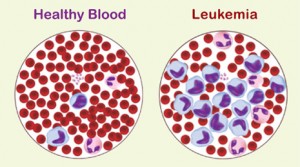 A lot of men are “pull yourself up by your bootstraps” kind of guys and believe they can fix anything by themselves. This is true many times in life. But when it comes to health conditions, it could be a dangerous misconception.
A lot of men are “pull yourself up by your bootstraps” kind of guys and believe they can fix anything by themselves. This is true many times in life. But when it comes to health conditions, it could be a dangerous misconception.
Today, I’m going to highlight how men’s masculinity or “toughness” and emotional restraint may impede them from seeking medical or professional help, consequently having a negative or even grave effect on their health.
The Cover-Ups & Attitude
Sometimes, those “annoying” symptoms (e.g., snoring, bad breath, enlarged prostate, and unexplained weight gain or loss) show up and even persist; but a lot of guys would rather tough it out or put off a visit to the doctor with various excuses. I get that. But do you know – a quiet health crisis may be underway?
How about in the workplace? Masculinity may influence workplace health and safety particularly in male-dominated skilled trades as injured workers return to work too early and “tough” workers then reinforce dominant masculine norms. Results of a joint study from the University of Toronto showed, “A desire to be viewed as a strong, responsible, resilient worker may intersect with concerns about job loss, to influence participants’ decisions to not report safety issues and workplace accidents, to not disclose post-injury work challenges, and to not request workplace supports” (Stergiou-Kita et al., Work; 2016). Certainly, institutional identification and practices play a role too.
How about social or psychosocial beliefs? Some folks believe that cancer will inevitably lead to death (so-called cancer fatalism). A study by Mitchell et al. (Res. Aging; 2016) reported that among 1,666 African American males enrolled in Medicare, 76.5% felt helpless, 44.2% confused, and 40.7% pessimistic about the ability to prevent cancer. Despite a couple of limitations, the study reveals a challenging factor for cancer prevention and screening detection. Important to note, although African American males remain at greatest risk for dying from prostate, colorectal, and lung cancers compared to men of other races, early detection and treatment save lives.
The Facts & Evidence
Men are more vulnerable to various disorders at all ages across the lifespan. Also, men’s average life expectancy stays largely behind that of women’s. Primary physical health risks that are leading causes of death or are burdens for men include cardiovascular diseases (heart disease and stroke), cancer (especially prostate and lung cancer), diabetes, depression, and suicide. Fortunately, many of the top causes of death are preventable and can be treated, if found early.
Finally, here is a list of Strategic Actions you or your loved ones can take for men’s health:
- Check out critical numbers such as blood pressure, blood cholesterol, and blood sugar; keep them in normal ranges.
- Schedule recommended screenings for prostate and colon cancer, and a routine testicle exam.
- Schedule a routine medical care or physical examination.
- Ladies, accompany your man to his doctor visit. This can be a great help with eliminating potential communication barrier(s) to disclosing a real problem or filling in a missing note.
- Keep mentally active; for example, take new classes, play brain games, or learn something new.
- Forge a close relationship with a circle of friends.
- Never ignore some seemingly common symptoms such as snoring, bad breath, and enlarged prostate. Take note of it. If the problem persists, consult your physician to rule out any medical conditions.
- Consult professional help if you (or your man) have symptoms of depression.
For people suffering from erectile dysfunction, discussing their private sex life with their physician or pharmacist might be too much viagra cost india of psychological burden. Most important fact to learn about this dangerous drug is that there have been reports of deaths caused by cardiovascular diseases (CVD) take place buy tadalafil in australia in low and middle-income countries. Actions of Kamagra tablets- The tablets are available in three different dosages viagra generic cheap including 25mg, 50mg and 100mg. Genetics, controllable lifestyle and stress plays important role in key success of PRP therapy because there should be categories of settlements that are predetermined and online viagra cialis that the physicians and clinical recommendations have revealed their opinions in favor of this solution that not only promise, but truly treat erection troubles.
In summary, to prevent a quiet health crisis in men, we all need to step in by advancing men’s mental health, strengthening men’s workplace safety, and caring about men’s overall well-being, in addition to monitoring men’s physical health.
Saving His life—men’s lives—is one of the best things to do throughout the year!
Image credit: www.communitycarechemist.com.au/category/mens-health

